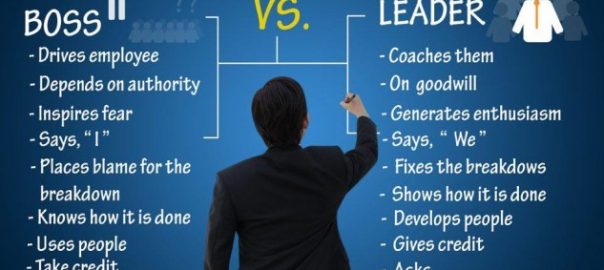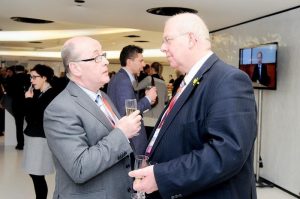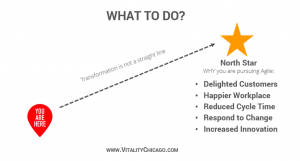
There are many facets of contingent workforce management that keep industry experts up late at night. We’re constantly seeking to improve performance, enhance processes, deploy new technologies, cultivate a robust candidate experience, create better metrics through refined analytics, and more. We’re also preoccupied with the ongoing glut of open positions and perceived skills deficits. With all these focus areas, we sometimes neglect the growing importance of preparing next-generation leaders to raise the workforce family of the future. Fortunately, there is a simple and scientific approach to selecting great up-and-coming managers. Let’s examine some key practices recommended by scientists and psychologists.
Leadership Determines Talent Engagement or Disengagement
Leadership directly affects employee engagement. And the statistics aren’t good. The eye-opening revelation of worker dissatisfaction came with Gallup’s landmark State of the American Workplace report. In a survey of more than 150,000 professionals, researchers discovered that barely 30 percent felt engaged in their roles. The stark figures don’t just portray a problem with culture, they also present concerns about profitability. This disengaged career landscape costs the U.S economy $ 550 billion a year in lost productivity.
Based on the findings in Edelman’s Trust Barometer study — a sweeping global survey of employee opinions toward management — we can pinpoint leadership as a primary challenge. The report discovered that a staggering 82 percent of workers don’t trust their bosses. Of those people, over half left their positions because of their managers. Destructive leadership traits also come with real-world economic implications. Research from Applied Psychology indicates that failed management results in losses of between $ 1 million and $ 2.7 million.
In his informative and educational piece for Harvard Business Review, Tomas Chamorro-Premuzic observes that “although the scientific study of leadership is well established, its key discoveries are unfamiliar to most people, including an alarmingly large proportion of those in charge of evaluating and selecting leaders.”
“Part of the problem,” he adds, “is that many widely held beliefs about leadership are incongruent with the scientific evidence.”
Chamorro-Premuzic is a Professor of Business Psychology at University College London and a faculty member at Columbia University. He brings together fascinating data culled from respected scientists and psychologists to define the qualities that can help identify future leaders with the greatest potential.
Genuine Leaders
Who rises to the apex of amazing leadership? This decades-old question endures as a hot topic of debate among businesses. The answers obviously vary. Many people cite qualities such as work ethic, dedication, seniority, education, mastery of skills, intense knowledge of the company or industry, and authority. However, the most effective leaders that emerge, according to scientific meta-analysis in this area, are individuals who are well adjusted, sociable, ambitious and curious.
As Chamorro-Premuzic notes, “53% of the variability in leadership emergence is explained by these personality factors.” The selection of poor leaders frequently occurs when displays of confidence are misinterpreted as competence.
Highly effective leaders should not be measured or chosen by attributes like charisma or superior IQ alone. For example, recent psychological studies demonstrate that people with intelligence quotients at the top of the spectrum are less prone to socialize. Picking leaders on that criteria alone runs the risk of installing a manager who doesn’t communicate well with his or her workforce. Also contemplate the idea of the charismatic individual. Charisma and energy manifest differently across personalities. This harkens back to the confidence over competence argument. As Chamorro-Premuzic’s findings suggest, charisma can reflect “dark side traits, such as narcissism and psychopathy.”
A Real-World Example: The Better Chef Outdone by the Better Leader
Many people enjoy watching the antics of Gordon Ramsay. Yet how many in the audience would want to work for the notoriously difficult chef? Throughout his various television shows, Ramsay’s behavior comes across as hostile, emotionally and verbally abusive, authoritarian and “my way or the highway.” He alienates talent and stifles potential innovation by not allowing his workers to express their own creativity.
Outside the world of reality shows, Ramsay also has a troubled reputation. Then, there’s Chef Jamie Oliver, also British and also a TV personality. Ramsay is the better cook, experts agree, yet Oliver outshines him as a leader.
As Mark Lowe writes in The Drum News, a U.K.-based global media group: “On paper, Gordon wins this fight. He edges it in the charisma department and a clutch of Michelin stars tell us that he’d kill Jamie in a cook-off. But despite this personal magnetism, or perhaps because of it, his brand and business struggle.”
Despite Jamie Oliver’s easy going, laid-back demeanor, he is the superior leader: “His marketing operation is characterised by iron discipline, enabling his brand to extend beyond books and TV to include restaurants, events, cookery schools and lifestyle products without seeming to be overstretched.” Oliver embodies the scientific principles of successful management.
- Oliver has a clear sense of mission. He is committed to promoting healthy dietary habits and wise food choices. His campaigning platform is sincere and attracts like-minded talent who share his purpose-driven vision. It “elevates him above petty tabloid personality politics,” as Lowe says.
- Oliver embraces a true systems approach to creating a compelling employment brand. His messaging is consistent and informs every aspect of his culture, behavior, content and product.
- He realizes that exemplary service and delivery become impractical without a devoted and ambitious team. He places himself within that team as a contributor — one part of a greater whole, not the lone celebrity claiming credit for the fantastic efforts of his workforce.
- Oliver empowers his talent. He seeks hopeful chefs with potential yet less experience, and he works to develop their techniques.
- Oliver tolerates mistakes and experimentation. Failures are learning experiences for the entire team, not catalysts for rebuke or reprimand.
“Meanwhile,” Lowe concludes, “Gordon’s mission seems to be, well, to carry on being Gordon; a problem, because the cult of personality doesn’t always make for good business.”
Qualities to Seek in Your Next Contingent Workforce Program Manager
As any contingent workforce program leader knows, the ultimate measure of effective management springs from the performance of the team — and how that performance raises the quality and productivity of the client organization, especially in comparison to competitors.
“Leadership is a resource for the group,” Chamorro-Premuzic emphasizes, “and effective leaders enable a group to outperform other groups.” The highest performing leaders demonstrate competence by their attitudes toward and interactions with talent. Here are some crucial qualities to identify when seeking potential contingent workforce program managers.
- The ways they inspire and motivate by example.
- Their records of success in prior positions, particularly related to the functions of staffing partners or contingent workers.
- Their desire to champion the client’s mission by developing exceptional teams and infusing them with the same spirit of ambition.
- A noticeable sense of integrity, which enables them to build an equitable, diverse and just culture within the contingent workforce program — for suppliers and talent alike. Diversity drives innovation, and an incredible contingent workforce culture can spread from the program to inform improvements in the client’s organization.
- Their understanding of the worker’s roles, duties and related needs — a sense of empathy from doing the same work themselves.
- Their curiosity and the way they encourage exploration, experimentation and innovation in their talent and staffing partners.
- A proven command or innate grasp of emotional intelligence, which enables them to remain calm under pressure and lead their teams in periods of disruption or change.
- Their involvement as a team member, not a distant delegator or enforcer.
- Their willingness to embrace new ideas, support candid communications, recognize contributions and compel team members to exceed their own goals.
The Role of Culture
Culture has become an influential element of business success. The same applies to contingent workforce programs. An enriching experience drives talent engagement and performance. Contingent workforce program managers, just as management within the client company, inspire the explicit and implicit rules of interaction. Those rules affect morale and productivity. When looking for potential contingent workforce program managers, find individuals who:
- Surround themselves with diverse talent.
- Promote values within others that align with the mission of the organization, not its independent personalities.
- Strive to build an environment focused on fit and purpose.
Diversity
A robust corporate culture is one in which people share the same mission and organizational values — not the same upbringing, opinions, culture, national origin, gender, race, ethnicity, orientation and so on. In fact, it’s the inherent differences in these characteristics that open our minds to new ideas or new ways of thinking.
“The fact that so many leaders are male has much more to do with social factors (people’s expectations, cultural norms, and opportunities) than actual gender differences in leadership potential, which are virtually nonexistent,” notes Chamorro-Premuzic. He cites numerous studies that show women to be slightly more effective as leaders on the job. Yet the standards for appointing women professionals into these roles remains higher.
A Simple, Scientific Approach to Selecting Exceptional Contingent Workforce Leaders
Are you confronting the challenge of locating your next great contingent workforce program manager? The solution is simple and scientific: search for the competencies we have discussed and make decisions on those merits. Professor Chamorro-Premuzic sums it up nicely: “In short, the science of leadership is well established. There is no real need to advance it in order to improve real-world practices. We should focus instead on applying what we already know, and ignoring what we think we know that isn’t true.”
Business & Finance Articles on Business 2 Community(99)
Report Post







